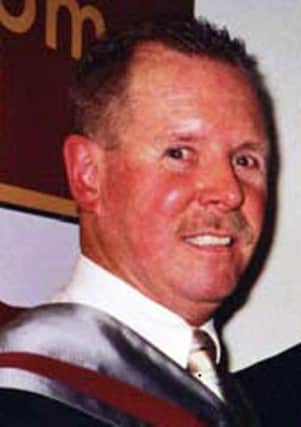Ruling may open new appeal for Carroll pair


Brendan McConville and John Paul Wootton were convicted of the policeman’s murder under joint enterprise laws.
Constable Carroll was shot dead as he responded to a call in the Craigavon area in 2009.
Advertisement
Hide AdAdvertisement
Hide AdMcConville, 44, and 24-year-old Wootton were also convicted of possession of an AK47 assault rifle and ammunition with intent to endanger life.
The younger man was further found guilty of attempting to collect information likely to be of use to terrorists.
In 2014 Wootton’s minimum jail term was increased from 14 to 18 years after the Court of Appeal ruled it was unduly lenient.
The aggravating factors of his still undefined role in the terrorist killing were cited.
Advertisement
Hide AdAdvertisement
Hide AdMcConville is to serve at least 25-years behind bars for his part in the murder.
A circumstantial case against the pair at the non-jury trial involved DNA and other evidence.
Wootton’s car was held to have been near the scene of the attack and driven off within minutes of the killing. Gun residue was found on a coat linked to McConville which was later recovered from the vehicle.
However, a panel of Supreme Court justices concluded this week that the law on joint enterprise - which can result in people being convicted of assault or murder even if they did not strike the blow - had been wrongly interpreted by criminal trial judges over the past 30 years.
Advertisement
Hide AdAdvertisement
Hide AdThey said it was not right that someone should be guilty merely because they foresaw that a co-accused might commit a crime. Supporters of McConville and Wootton believe this may open the door to a fresh appeal.